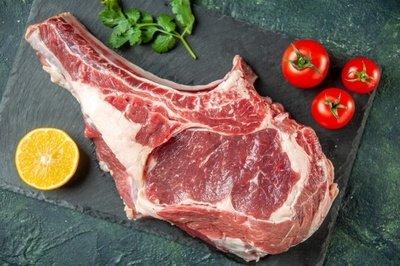Can Prostatitis Patients Eat Beef?
Date:2022-11-05 click:0
The prostate is one of the unique genitourinary organs of men, located in the pelvis, close to the neck of the bladder, mainly to secrete prostatic fluid and control the number of urination. The prostate gland, called the unique lifeline of men, is thus essential for men. It is also the preferred way to maintain the health of the prostate gland for men. A question many prostatitis patients have is that they worry that beef is an "irritating food" that can trigger or aggravate the condition. But doctors suggest that prostatitis patients can properly eat some beef to supplement nutrition.

Prostatitis is a common male disease. It is critical to determine if bacterial inflammation causes the condition based on the indicators examined for prostatitis. Most prostatitis is caused by urinary tract infections. When bacteria in the urinary tract retrograde into the prostate, it can lead to inflammation of the prostate.
The common symptoms of prostatitis are urethral irritation (frequent, urgent, and painful urination) and chronic pelvic pain. To reduce the bitterness of food to the patient's body, doctors generally recommend that patients eat light and easily digestible food not to aggravate the burden on the body.
But eating bland food doesn't mean the patients can't eat beef. Generally, when there are lesions in the prostate area, the patients need to enhance the protein that the body needs. Protein is a component of germ cells and needs to be replenished in sufficient quantities if the patients want to maintain normal life activities. Adequate protein replenishment helps improve resistance and can facilitate recovery from prostate disease.
Therefore, people suffering from the prostate disease should properly supplement themselves with more protein, such as lean meat, fish, eggs, and other foods rich in protein. Beef is rich in high-quality protein, which is of great help in increasing the resistance of the patients. In addition, the zinc content in the body of patients with prostatitis is significantly lower than that of ordinary people. Patients with prostatitis can eat beef to supplement zinc, helping promote recovery. But remember, don't put peppers in the meat.
Prostatitis patients can eat beef. Eating beef will not aggravate the clinical symptoms of prostatitis. Prostatitis patients should pay attention to a light diet. First, patients with prostatitis can eat more vegetables and fruits, such as broccoli, apples, pears, bananas, oranges, and other foods. In addition, pears and bitter gourds have diuretic and detoxifying effects, and prostatitis patients can eat more to ensure a smooth bowel movement and reduce prostate stasis. It is a recommendation that patients with prostatitis drink more water, go to bed early, and get up early. These can help improve the symptoms of prostatitis.
Prostatitis patients also need to change bad habits that are not beneficial to the disease and their health. For example, patients with prostatitis should not drink alcohol. Alcohol irritates the prostate, and people who drink regularly are more prone to prostatitis. In addition, drinking alcohol will aggravate the clinical symptoms of prostatitis.
Prostatitis patients are advised not to eat spicy, stimulating, and cold food. If they often eat these foods, it may induce or aggravate the clinical symptoms of prostatitis. Some meat is unsuitable for prostatitis patients, such as dogs, mutton, seafood, etc., because this meat is considered aphrodisiac and can enhance vitality, so that overeating may lead to aggravation of the disease.
Therefore, there is no necessary relationship between eating beef and the occurrence of prostatitis. When unfortunately suffering from prostatitis, patients should promptly go to the hospital for clinical evaluation, determine the type of disease and choose the proper treatment.
In addition to regulating diet and changing habits, patients can take traditional Chinese medicine Diuretic and Anti-inflammatory Pill to eliminate prostatitis symptoms without harming the body. Its effects of clearing heat, detoxifying the body, being a diuretic, and drenching and relieving pain are good for improving the urinary system in men.
You may also be interested in:



